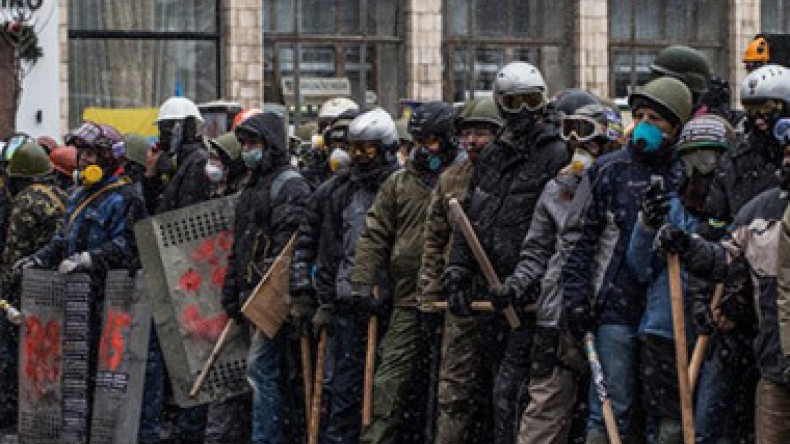
'Ukrainian opposition doesn’t control crowds'
Ukrainian opposition aren’t asking for concessions, rather demanding the government’s complete capitulation, political blogger Alexander Mercouris told RT. The main problem is that the opposition leaders are not in control of the protesters.
RT: Ukraine’s opposition says it wants more concessions form the government. Do you think they will to get those concessions?
Alexander Mercouris: One does not know at this point. What they are basically demanding are not concessions, they’re demanding the government’s complete capitulation. They want the president to resign, they want new elections, they want new parliamentary elections and they want power transferred to themselves. Whether Mr. Yanukovich is prepared to grant or agree to those things remains to be seen. A few days ago, I would have said now, but then I did not expect for him to offer Mr. Yatsenyuk and Mr. Klitschko posts in his government. At the moment the position of the government is that they will not agree to elections.
RT: The opposition and government agreed to clear the street of Kiev last night, but there were still protesters there. How in control do you think oppositions’ leaders are?
AM: They are not in control. If we can go back to what happened last Sunday - the violence began when the opposition leaders spoke at Maidan Square, made an extremely disappointing impression on the crowds and the crowds then shifted and attempted to go down Grushevskogo Street towards the parliament and the government buildings. Mr. Klitschko tried to restrain them, to stop the violence that was going on and he got squirted by a fire extinguisher. He doesn’t control the crowds.
And this is a problem because he goes to negotiate, agrees to things with the government, the moment he gets back to Maidan [Independence] Square, those agreements are simply torn up because the protesters who are on the street are not responding to him.
RT: Meanwhile the EU has been stepping up its pressure on Ukrainian government. There is a statement from the head of the European Parliament Martin Shultz - he is urging sanctions. How close is Brussels to acting on these threats?
AM: I don’t think it is as close as it makes out. There are divisions within the European Union itself. There are some hardliners like Mr. Shultz, but I am not convinced that everybody in the EU agrees with this.
RT: It looks like the government is trying hard to appease the opposition. Do you think its efforts will have any impact on the EU vision of the conflict?
AM: I don't think it does. The hardliners with the EU have long ago made up their minds, which is that they support the opposition and they oppose the government. And they are just not interested in who is actually driving these protests on the streets or where the violence is coming from. As far as they are concerned it is the government that is to blame.
Newsfeed
Videos






























